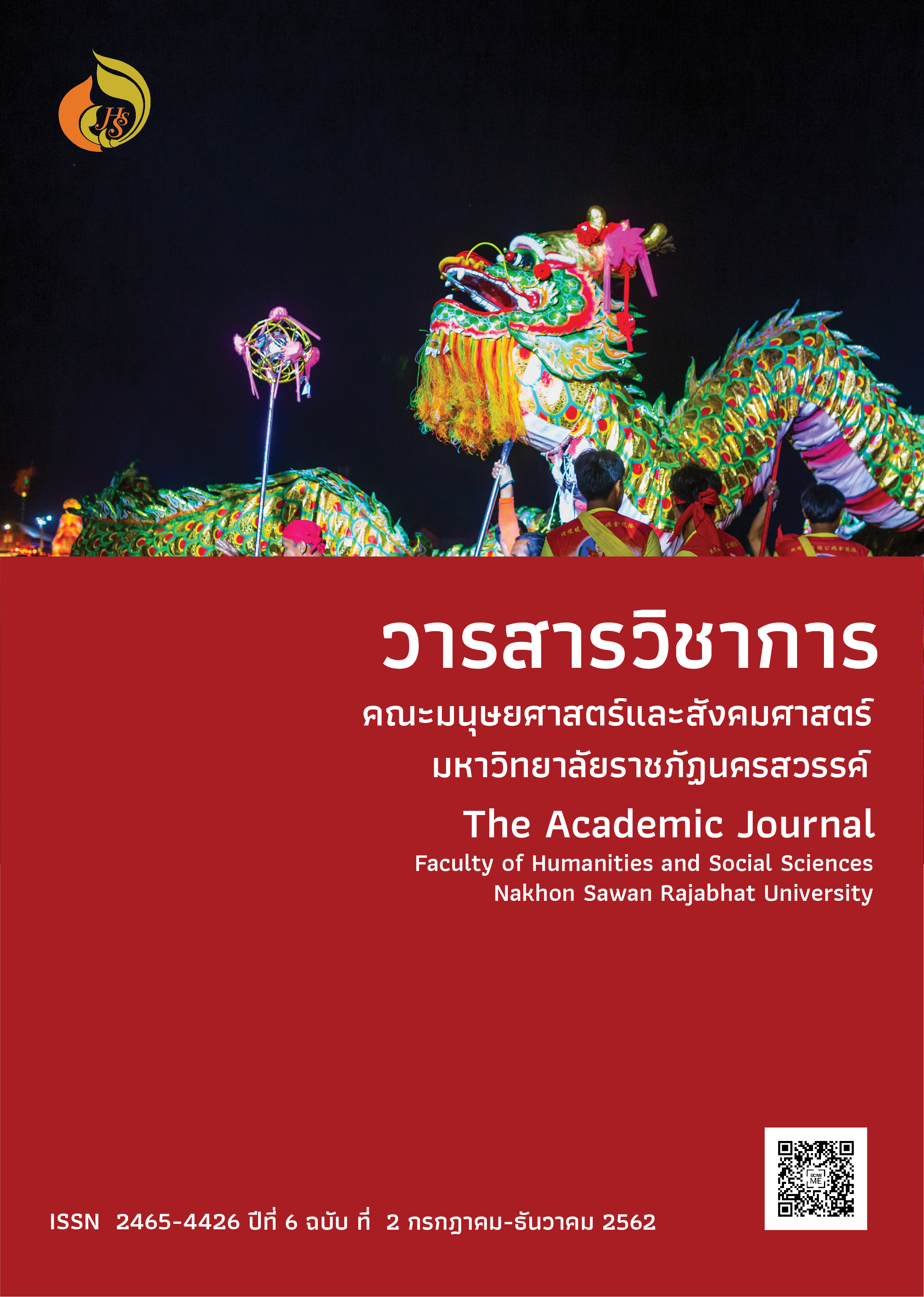The Appropriateness of Mediation in Resolving Administrative Disputes in the Administrative Court
Main Article Content
Abstract
This research focuses on principles and theories of mediation in resolving administrative disputes in the administrative court and the appropriateness of using mediation in administrative proceedings. If the mediation is employed, what are scope, criteria and procedures that should be considered so that the mediation procedures are carried out correctly, appropriately and finally maintaining the principles of public law. The methodology employed includes the study of basic concepts, principles and theories on the administrative case, administrative resolution and mediation in administrative disputes, the analysis of comparative study and mediation usage in the Court of Justice and the insight into the Administrative Court and Administrative Court Procedure, (No 12) B.E. 2019 and type of administrative cases.
At present, the parties often choose to settle the disputes or litigation in the court for judicial decision. This practice is considered as the most accepted method. However, at the same time, the court proceedings are a process that is specifically prescribed by law, therefore, the procedures must be strictly practiced and usually take a long time. More importantly, the decisions are unpredictable; hence, the outcome of the judgment might not be satisfied by both parties. In addition, with the lack of state screening measures, it brings the excessive amount of cases to enter into the court, which is the burden of the entire justice system.
The Court of Justice has adopted a method of dispute resolution called mediation in the court to make a compromise for both parties. The mediation is convenient, fast and effective method that creates satisfaction for the parties. At the same time, the Administrative Court has the idea of using mediation methods to settle disputes in the Administrative Court. However, the administrative cases have different legal status from the civil cases or particular cases that fall under the jurisdiction of the Court of Justice, for instance, the inequality of the parties’ legal status. Besides the issues in the administrative case is to examine the legality of administrative acts. Therefore, the question is that whether or not the implementation of the dispute resolution method by using mediation methods in the administrative case can be effectively practiced under the rule of law and serve as an engine of public interest protection while protecting the rights of people.
Subsequently, the Office of the Administrative Court has announced the Administrative Procedure Act (No. 12) BE 2562, which stipulates mediation rules for the Administrative Court. So far, it is unclear whether the rules, procedures, and conditions in the application of mediation procedures are appropriate and what should be the essence of this Act that could be able to resolve the delay and the lack of efficiency in judicial proceedings. The expected proceedings should be consistent and suitable for public law principles such as the rule of law and the principles of public benefit protection.
The findings reveals that the limitation on administration acts, the public law principles and the type of administrative cases are the three major concerns when using the mediation in the administrative case in the Administrative Court. Therefore, the suggestions are as follows. 1. The law on mediation in the administrative case should determine the role of the administrative judge on controlling the mediation process and the agreement of parties in accordance with the principles of public law. 2. The Office of the Administrative Court should issue regulations related to the use of mediation in resolving administrative disputes in the administrative court that comply with the central law. Consequently, these will facilitate a systematic procedure in the administrative court, control the amount of cases in the court, and provide justice to both parties as well as sustain the public benefit effectively.
Article Details
References
ม.ป.พ.
ชลิตา ศรีสง่า. (2552). ข้อจำกัดของกฎหมายในการไกล่เกลี่ยข้อพิพาทคดีแพ่งของศาลยุติธรรม(วิทยานิพนธ์มหาบัณฑิต). กรุงเทพฯ: มหาวิทยาลัยรามคำแหง.
ประสาท พงษ์สุวรรณ์. (2516). การระงับข้อพิพาททางปกครองโดยวิธีอื่นนอกจากการฟ้องคดีหรือพิพากษาโดยศาลปกครอง. วารสารนิติศาสตร์, 33(3), 470.
ปาลีรัฐ ศรีวรรณพฤกษ์. (2556). บทบาทของตุลาการศาลปกครองในการไกล่เกลี่ยข้อพิพาท: ประสบการณ์ของประเทศฝรั่งเศส. วารสารวิชาการศาลปกครอง, 13(3), 2-6.
พัชฌา จิตรมหึมา. (2560). แนวคิดและหลักการไกล่เกลี่ยข้อพิพาทในศาลปกครองฝรั่งเศสที่แก้ไขเพิ่มเติมใหม่ ค.ศ.2016, เอกสารเสนอคณะกรรมการกฤษฎีกา (คณะพิเศษ) เพื่อประกอบการพิจารณาร่างพระราชบัญญัติจัดตั้งศาลปกครองและวิธีพิจารณาคดีปกครอง (ฉบับที่ ...) พ.ศ..., กรุงเทพฯ: สำนักงานคณะกรรมการกฤษฎีกา, 1-20.
ภานุ รังสีสหัส. (ม.ป.ป). การไกล่เกลี่ยข้อพิพาท. ใน รวมบทความการไกล่เกลี่ยและประนอมข้อพิพาทและความรู้เบื้องต้นเกี่ยวกับกฎหมายที่เกี่ยวข้อง. พิมพ์ครั้งที่ 2. กรุงเทพฯ: ม.ป.พ.
วรพจน์ เวียงจันทร์. (2557). การไกล่เกลี่ย สมานฉันท์ ในระบบพิจารณาคดีอย่างต่อเนื่องของศาลยุติธรรม: ศึกษาเฉพาะกรณีของศาลจังหวัดพิษณุโลกและศาลจังหวัดกบินทร์บุรี (การอบรมหลักสูตร ผู้พิพากษาผู้บริหารในศาลชั้นต้น รุ่นที่ 13 สถาบันพัฒนาข้าราชการตุลาการศาลยุติธรรม สำนักงานศาลยุติธรรม, 2557), 7-13.
วรารัตน์ ไคขุนทด. (2554). การไกล่เกลี่ยข้อพิพาทในคดีปกครอง: สหพันธ์สาธารณรัฐเยอรมนี.วารสารวิชาการศาลปกครอง, 11(4), 54.
สำนักวิจัยและวิชาการ สำนักงานศาลปกครอง. (2558). พัฒนาการของการไกล่เกลี่ยข้อพิพาทในคดีปกครองของศาลปกครองไทย ระหว่างปี พ.ศ.2543 ถึง พ.ศ.2558. กรุงเทพฯ: สำนักงานศาลปกครอง.
Boyron Sophie. (n.d.). The Rise of Mediation in Administrative law Dispute: Experiences from England, France, and Germany. Public Law (50th Anniversary Year), 329.
CHABANOL Daniel. (2004). Code de justice administrative. 2 èd., (paris le moniteur), 125.
E-UROPEAN JUSTICE. (2016). Mediation in Member states. Accessed December 30, 2018, From https://e-justice.europa.eu
Frost, Stephen. (n.d.). Use of ADR in AAT GST Case. Accessed April, 02, 2018, From http://www.aat.gov.au/Publications/SpeechesAndPapers/AATMembers/docs/frostUseOfADRSeptember2100.rtft.


